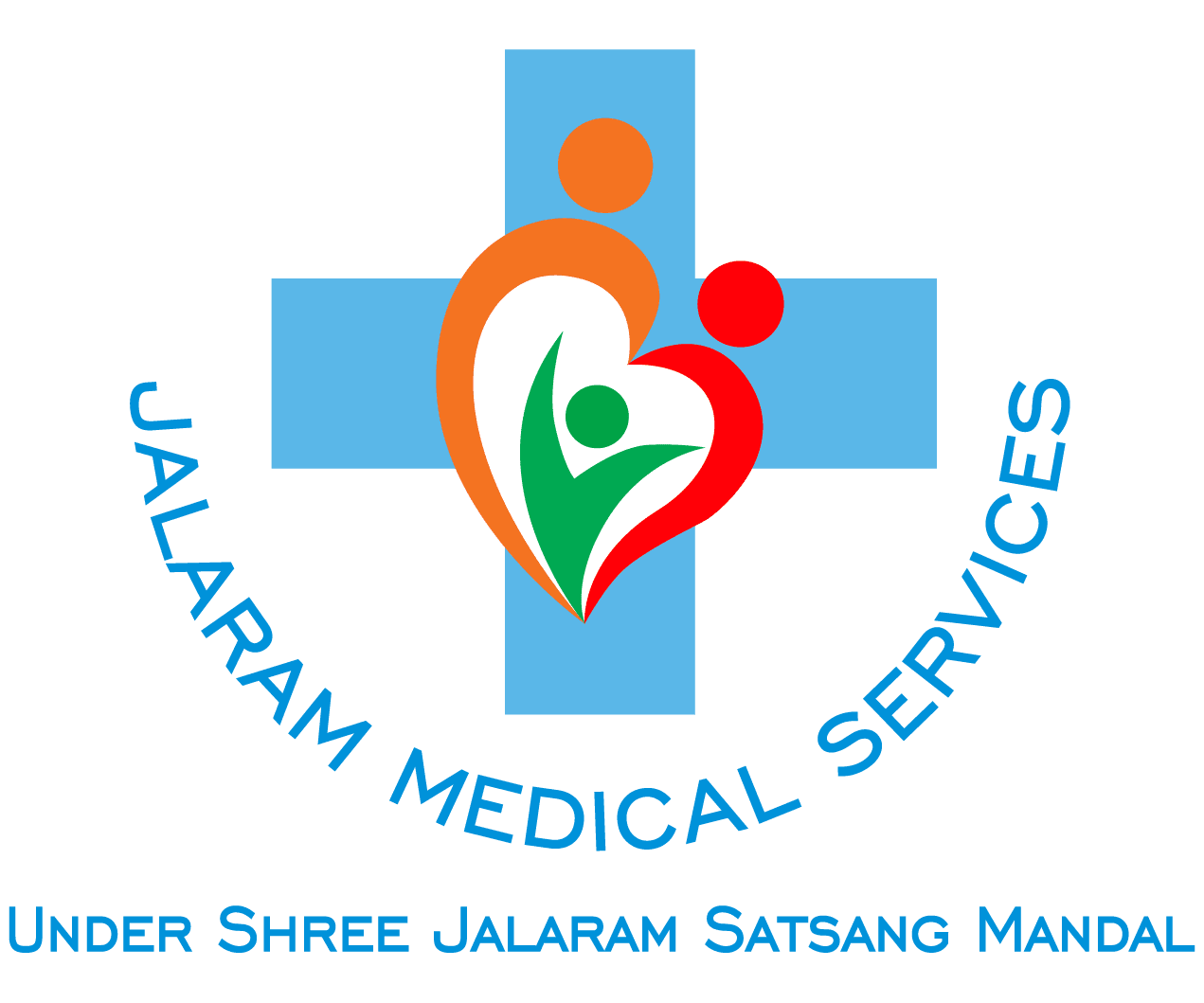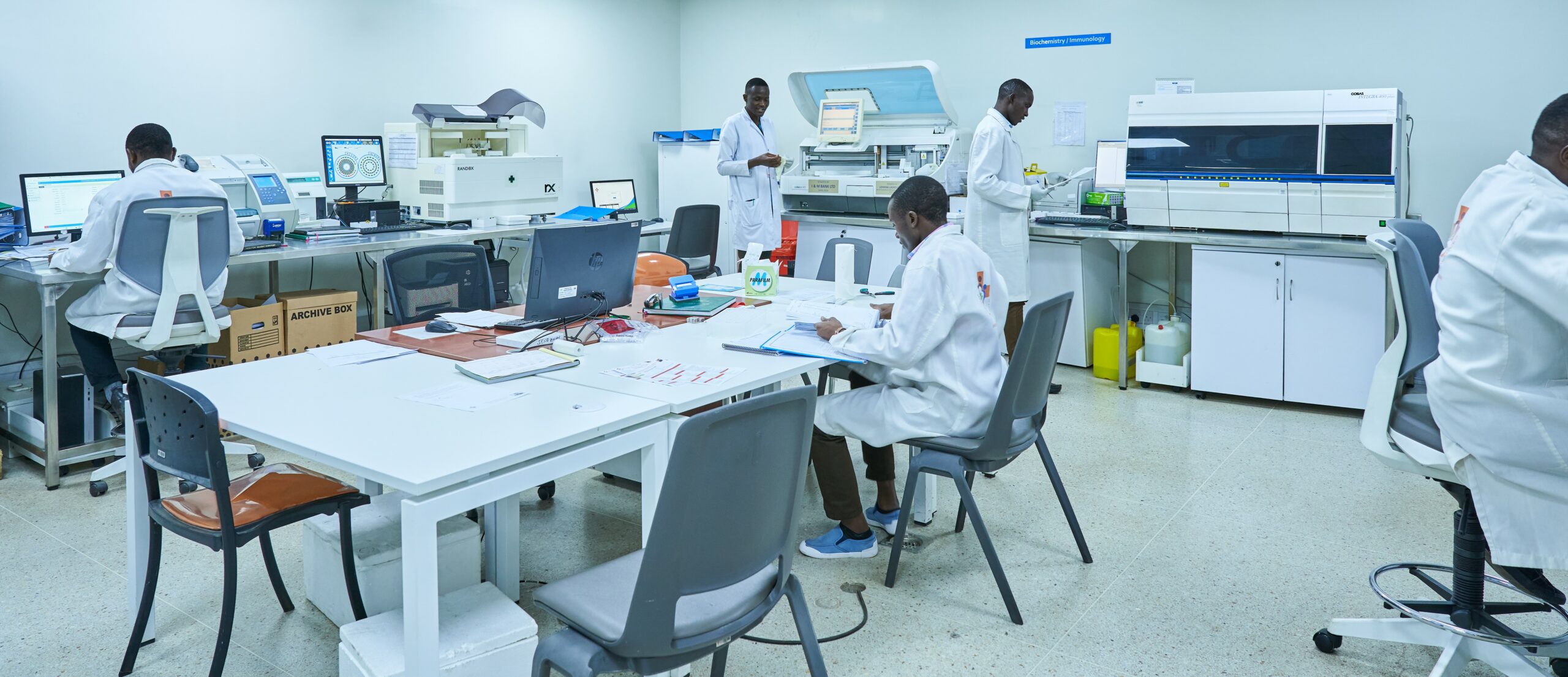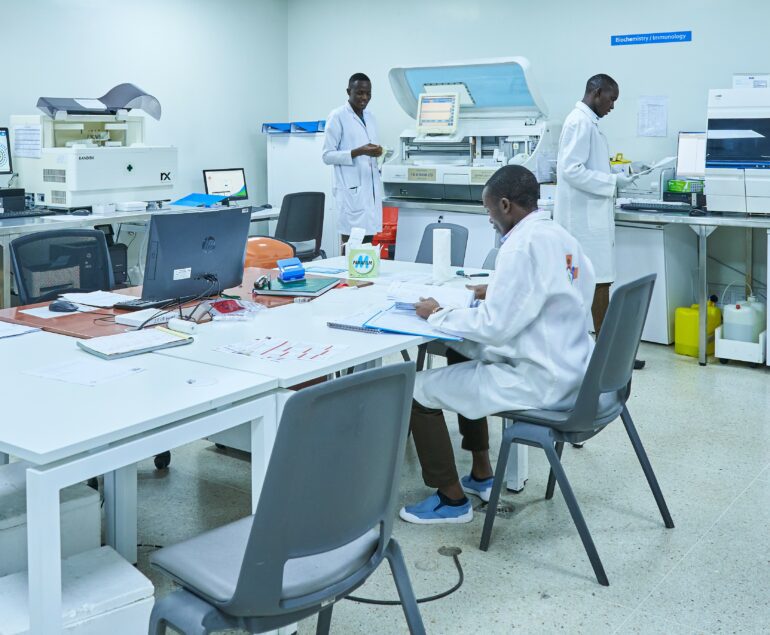Our fully fledged laboratory with ultramodern equipment for a reliable, safe, and short turnaround time!
Advise on the choice of the tests, results interpretation, and logistical matters can be
obtained by contacting the laboratory on the following contacts:
1. Pathologist/Laboratory Director:
- Extension 0205012200
- Email: pathologist@jalaramnairobi.org
2. Laboratory Supervisor
- Extension 0205012200
- Email: labsupervisor@jalaramnairobi.org
3. Quality Assurance Officer
- Extension 0205012200
- Email labqa@jalaramnairobi.org
4. Technical Assistance (Biochemistry, Haematology, Microbiology and
- Histology/Cytology
- Extension 0205012200
Laboratory Consent
The laboratory terms the request form as a legal agreement between the patients
and the laboratory, hence, the laboratory does not take verbal requests.
For majority of tests without risk of harm to the patient, the laboratory takes implied
consent to perform the tests, implied consent is inferred by you (the patient) paying
for, and agreeing to come and have the test done. Some other tests require a special
consent form filled in and witnesses by a laboratory representative (i.e. Phlebotomist,
pathologists., these tests include: Invasive procedures, Human Immunodeficiency
virus (HIV), Hepatitis B surface Antigen (HbSAg) and Hepatis C antibody (HCV), and
Genetic tests.
Patient preparation
1. Fasting Samples: A fasting period of 8 to 12 hours is needed for all fasting
samples, during the fast, you can only take water.
2. Oral glucose tolerance testing: Patient on a normal carbohydrate containing
diet (at least 150gms/day) for at least 3 days before the test. On the day of the
test typically a patient, 10-12 hour fasting before sample collection, preferably
overnight, prepare to stay at the laboratory for up to 3 hours during the testing
process.
3. Cortisol: Timed collections, Cortisol AM sample collected between 7AM and
9AM, cortisol PM samples collected between 3PM and 5PM.
4. Stool: Stop using laxatives and antidiarrheals at least 1 week before the day
of the test
5. Urine: First morning sample preferred for urine culture, urine samples are to
be delivered at the laboratory within 2 hours of collection, otherwise keep the
sample refrigerated.
Patient Identification
The laboratory requires that patients are identified using at least two identifiers, that
is name and age or an assigned hospital number.
During sample collection, patients are encouraged to verbalise their names for
positive identification.
Process flow for sample collection
The following is the process flow at the laboratory for sample collection.
Clinicians at the DRKJMS for Internal patients:
1. Clinician places the test request in the HMIS.
2. Patient proceeds to billing for billing and invoicing.
3. After successful billing and invoicing, the patient is given a receipt/invoice.
4. Present the receipt at the laboratory reception area.
5. Patient waits to be called at the laboratory phlebotomy area for sample
collection.
Walk in patients (Clinicians not at DRKJMS)
Patient presents the request form at the laboratory reception/billing area.
For HIV, direct requests are not permitted and therefore the patient will have to
see a clinician for counselling before sample collection is done.
Billing is done as per the request form and the patient pays for the tests.
After successful payment, the patient is provided a receipt/invoice.
Present the invoice/receipt and request form at the laboratory.
Wait to be called at the phlebotomy area for sample collection.
Sample acceptability criteria
The laboratory only accepts samples for processing when the sample co not
jeopardize the quality of results. Samples are accepted for analysis if they meet the
following criteria:
- The sample is not leaking.
- The sample is not soiled.
- The container is not empty.
- The container is not broken.
- The sample is placed in the correct container.
- Whole blood samples in EDTA is filled to at least half of the prescribed volume
and is not clotted. - Citrated samples are filled within 10% of the prescribed volume
- Serum and plasma samples are not be visibly haemolyzed.
- Serum and plasma samples have enough volume for analysis.
- The sample container is well labelled with at least the name of the patient and
the RKJ Number and/or the age of the patient. - Details of the hand label correspond to the barcode label.
- Sample label corresponds to the patient details on the request form.
- The request form is adequately filled.
You will be notified to provide another sample when your sample is rejected.
However, there are some samples that cannot be rejected and include but are not
limited Histology tissues, you will be notified that these samples were received in an
unacceptable state and you will be informed of the same in the final results, take
caution when interpreting such results.
Sample transport
When samples are collected at the laboratory, they are delivered to the lab
immediately for analysis. When samples are collected outside the laboratory,
transport/keep them at 2-8°C and deliver them to the laboratory immediately, unless
informed to store the samples at a different specified temperature.
Home collected samples should be delivered to the laboratory within 2 hours of
collection.
Reports of examination:
Electronic Reports
When the results are ready, the reports are emailed to you and your doctor.
When you are being seen at DRKJMS, the reports will be accessible in the HMIS by
your doctor when the examination is done.
Physical Copies
When you need to pick physical copies, present your receipt or invoice at the
laboratory dispatch area to collect the reports.


